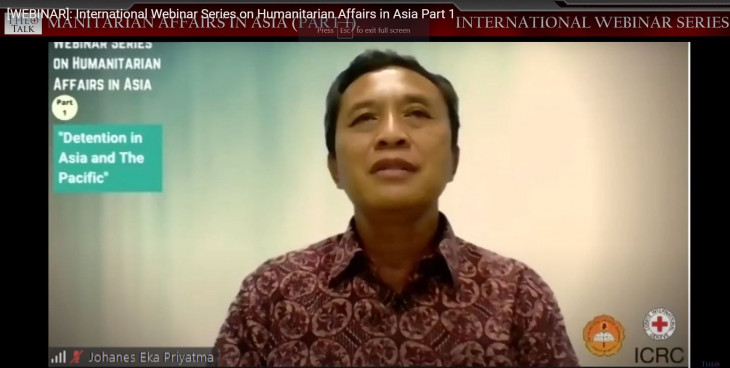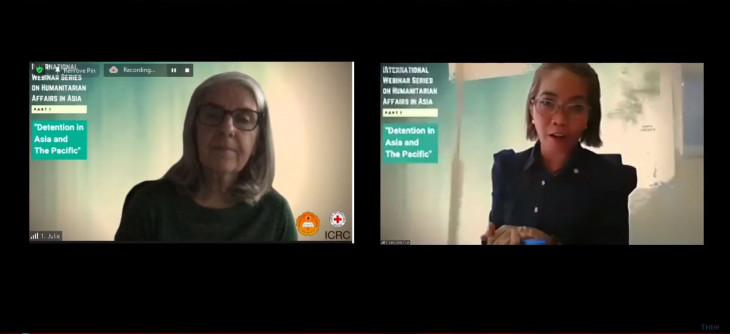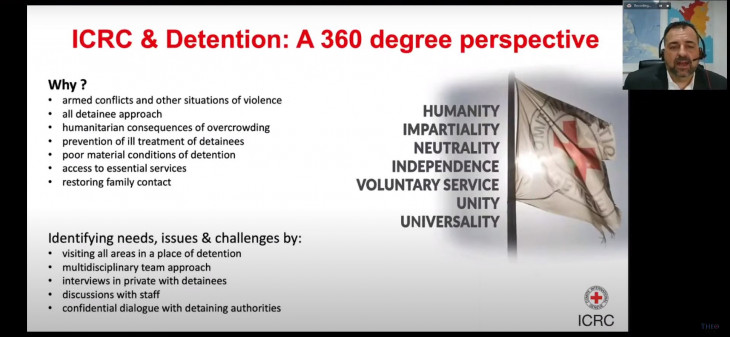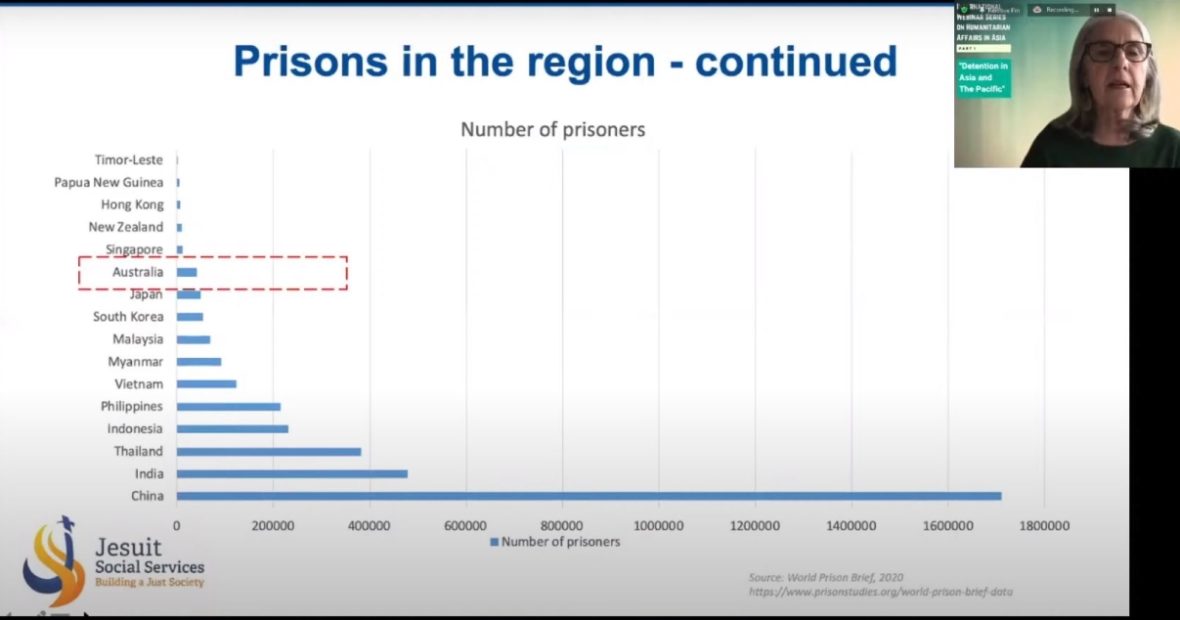On 26 October 2020, the International Committee of the Red Cross and Sanata Dharma University (SDU) and its Jesuit network in Asia addressed the issue of detention in Asia and the Pacific as the first session of a new webinar series on “Humanitarian Affairs in Asia.” More than 125 participants from Asia joined the webinar while others followed the YouTube link on SDU’s channel.

Opening the webinar, ICRC Regional Coordinator for Humanitarian Affairs Dominic Earnshaw explained, “The webinars aim to build dialogue and create a space for sharing expertise, experiences and practices between the ICRC and the networks of the Jesuits and Jesuit universities in Asia.” He added that though the ICRC is a non-religious organization, it recognizes the important role played by religious leaders and religious institutions of all faiths in promoting core humanitarian values and assisting the population through difficult times.

The Rector of Sanata Dharma University, Dr. Johanes Eka Priyatma, underscored the common humanitarian vision shared by the ICRC and Sanata Dharma University. Dr. Johanes added “people have been driven out from their land, imprisoned or become refugees because of political conflict. So our common focus is how to guarantee the basic rights of those who do not have the ability to defend themselves.”
Chaired by ICRC Davao Senior Communication Officer Lany de la Cruz, the webinar featured three speakers: Julie Edwards, the CEO of Jesuit Social Services in Australia, Fr. Eli Rowdy Lumbo SJ, the Executive Director of the Philippines Jesuit Prison Service and Terry Hackett, the ICRC Regional Prison Systems Adviser based in Manila.
The event builds on the existing cooperation between the ICRC and SDU on teaching and dissemination of international humanitarian law (IHL) and humanitarian principles, one of the ICRC’s core mandates. In Southeast Asia, the ICRC has worked together on the promotion of IHL and humanitarian action with Islamic, Christian and Buddhist institutions.
Mrs. Edwards outlined the work of the International Jesuit Prison Network which was established in 2013 and is rooted in the Christian tradition. In the Asia Pacific context, the Network addresses two major issues, namely separation of youth and adult justice as well as capital punishment. “In Australia, Jesuit Social Services just started a new program called the Men’s Project because 95% of violent crimes are committed by men.”
Talking of his experience working in prisons in the Philippines, Fr. Lumbo said “each time I enter the prison camp, I do not know what to expect. After all there are almost 30,000 inmates in the National Penitentiary. As I cannot possibly minister to each one, I do what I can to those who approach me or to those who are referred to by the employees of the Bureau of Corrections or by their fellow inmates.”
In responding to the needs of the inmates, the Philippines Jesuit Prison Service provides three types of services, including social-pastoral program such as health services, dental services, weekly feeding and pastoral care; scholarships for young inmates and advocacy to raise awareness among the community to support inmates, particularly during the COVID-19 pandemic.

As the ICRC Regional Prison Adviser, Terry Hackett shared a broad picture of the ICRC’s activities in detention in Asia and the Pacific. He highlighted key regional challenges including overcrowding, prison infrastructure, access to healthcare in prisons and the difficulties detaining authorities face in delivering services to detainees in the face of limited staff and budgets.
“The ICRC helps find sustainable solutions for the benefit of detainees and their families. For instance, improving living conditions for detainees by constructing a new family visiting area in Myanmar, renovation of kitchen facilities in Cambodia and holding jail planning and design workshops in the Philippines” said Mr. Hackett.
The ICRC is also working across the region to support detaining authorities in improving access to basic health care services for detainees. Working with authorities in Asia and the Pacific, the ICRC is also helping address the issue of judicial guarantees by supporting a task force that deals with overcrowding in prisons in Sri Lanka, providing training for court clerks in Cambodia and prison management training in Bangladesh, Mr. Hackett added.

Finally, since the start of the COVID-19 pandemic, Mr. Hackett outlined how the ICRC has adapted its activities to help detaining authorities prevent, manage and control the spread of the virus in places of detention in order to keep detainees and staff safe.
Fr. Bagus Laksana SJ, the Dean of SDU’s Faculty of Theology, concluded the session saying, despite the virtual format, “we hear human stories and we are inspired by emotional stories and personal encounters that the speakers share.”

